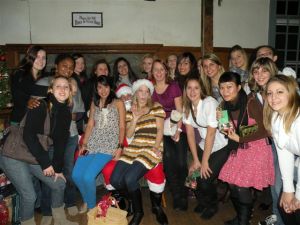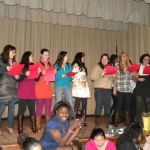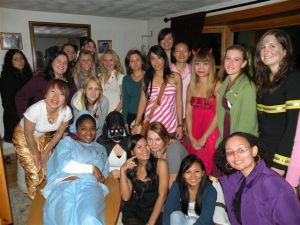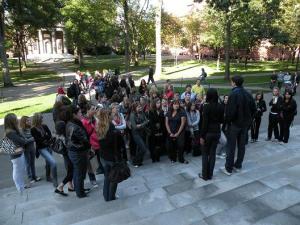The au pair program is a state department regulated cultural exchange program and by joining it, host families have agreed to comply with the program rules and regulations, most of which are set by the State Department. During busy times of your life as a host family it might be tempting to make exceptions to the rules. However, it is important to keep to the program rules and make sure that alternate arrangements are made in times of high need.
Please remember that your most important asset is your kids, and the au pair is the one watching them. The way the au pair is treated automatically affects the way she interacts with your children. An au pair that feels respected and like a member of the family (versus an employee) will be happier and will have more pleasant interactions with you and your children. An au pair that is not stressed and tired because she is overworked will be more focused on the safety and well-being of your children.
Please remember that even if an au pair agreed to disregard regulations, it does not make it right. Many au pairs might not agree, but are too afraid to speak up to you. They are far away from their own home and you are their family away from home. Here is a quote from one of my host mothers, Elizabeth: “It’s not a matter of Jomkwan’s willingness, we know she would probably be willing to work overtime in exchange for money or extra days off. We don’t feel comfortable violating the rules of the program. I know lots of people do it, and the au pairs go along willingly, but I think our relationship with Jomkwan has been better because we follow the rules so strictly, even though she’d probably be happy to go along with bending them now and then. We’re talking here about a young woman who is smart and responsible and resourceful, but who is also living in our house thousands of miles from her own home with a limited grasp of English. She’s also from a culture where deferring to authority is the norm. We are very sensitive to the fact that she has a diminished ability to tell us no when we make a request; following the program rules to the letter is an insurance against making her feel pressured to do things that she would rather not do.”
Here is a list of the most important program rules and regulations relating to the daily interactions with your au pair:
-Au Pair’s work hours cannot exceed 45 hours for the week. There is no banking of hours. If an au pair only worked 20 hours one week, she cannot be expected to work 65 the next week.
-Scheduled working hours cannot exceed 10 hours per day. Do not leave an au pair in sole charge of a child overnight.
-Au Pair gets 1.5 days off a week, and a full weekend every month.
-Au Pair cannot alone with the children during the first 3 days after she has arrived in your home.
-Never leave an au pair in sole charge of an infant under 3 months old.
-Au Pair may not care for the children of other families unless it is an occasional playdate.
-Your au pair can be expected to do chores associated with taking care of your children. Au pairs are not housekeepers, cooks, or maids. They are not responsible for house cleaning.
-Provide the au pair the opportunity to attend monthly cluster meetings.
-Facilitate the opportunity for your au pair to register and take the required educational classes
-Treat the au pair like a member of your family
-Have a clear weekly schedule for the au pair that includes duties and hours.




 Cultural exchange is a big aspect of the Au Pair in America program; so are the monthly au pair meetings that are organized by the local community counselors. In October, counselors Bettina Velona and Ute Smith threw a Halloween party for their au pairs. About 40 au pairs attended and seemed to have a grand old time. Some of them even played “catch the gummy worm” and had lots of fun doing so.
Cultural exchange is a big aspect of the Au Pair in America program; so are the monthly au pair meetings that are organized by the local community counselors. In October, counselors Bettina Velona and Ute Smith threw a Halloween party for their au pairs. About 40 au pairs attended and seemed to have a grand old time. Some of them even played “catch the gummy worm” and had lots of fun doing so. 